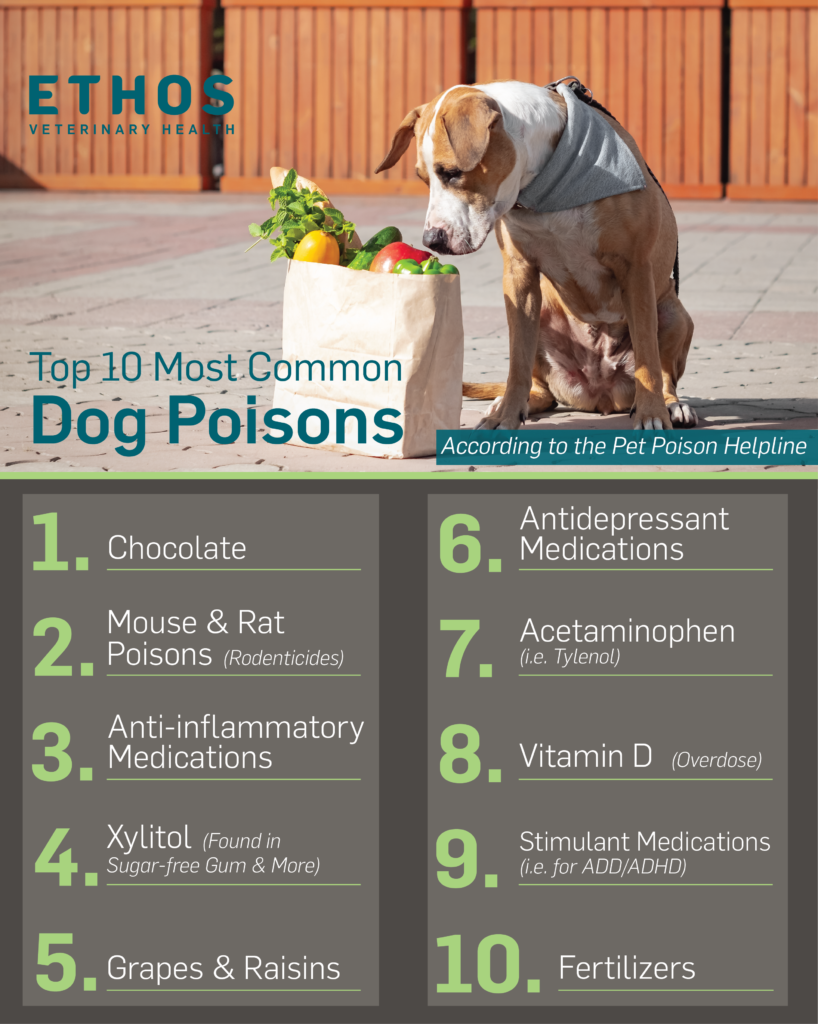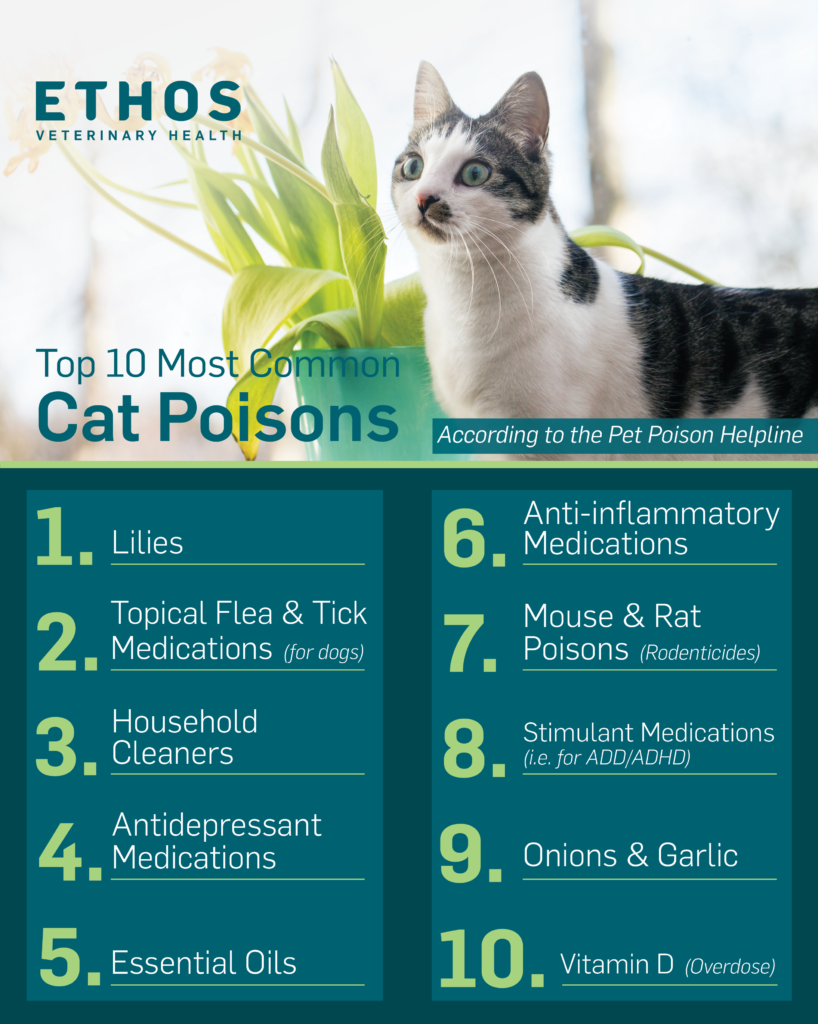When To Call Animal Poison Control

As all pet owners know, our beloved furry friends do not always make the most rational decisions about what they do and do not eat. We often find ourselves panicked because our dog ate a human medication, or, in the one second we turned around, managed to grab all the Easter candy. These are the times when pet owners call us to discuss what should be done to prevent their animal from becoming ill. In many situations we will ask you to call ASPCA Animal Poison Control Center. There are many reasons why we ask you to do this.
The Cost, and the Value
Firstly, to call this line costs $95, but is not an arbitrary fee. Your call to this line is essentially a virtual consult handled by a team of medical professionals, both technicians and doctors. These are technicians and doctors that specialize in toxicities in animals, so you are speaking with a specialist, immediately, and will hang up with a plan in place.
This is not only a great deal for $95, but also provides invaluable information for the medical team at the hospital regarding how to best help your pet.
Time Sensitivity
The team of technicians and doctors at our hospital understand that sometimes toxicities can be extremely time sensitive with effects already being seen by the time your pet reaches the hospital. This means if you have either already called the Poison Control Center or agree to call them upon presenting to the hospital with your animal, we can enact the plan laid out for your pet by these specialists as quickly as possible.
Without this information, more time may be spent on initial exams and diagnostics to determine the urgency, affected functions, and to come up with a plan.
Ongoing Support
And lastly, we do not have access to these professionals unless you call them. Once the pet owner has called and spoken with the team at the Poison Control Center, they will be given a case number. At this point your pet’s case can be revisited at any time by your veterinarian during their stay.
If the recommendation from the Poison Control Center doesn’t seem to be working, or your pet develops new symptoms, the doctors caring for your pet can call the Poison Control Center and make a new plan.
This is also an invaluable resources for the veterinary team as we may not immediately know the effects of a dog or cat ingesting a human medication, but the veterinarians at Poison Control Center will!
If This Happens to You
If your pet ingests something they should not have, or if you think they may have, we encourage you to give us a call as we may be able to help you over the phone, but we may also ask you to call the ASPCA Poison Control Center at 888-426-4435.
Also, know that you can call this helpline at any time. They are a group of veterinarians and technicians independent from the hospital who are available 24/7 to answer questions regarding toxicities in pets.
Written by Samantha Houde

